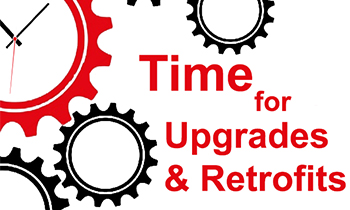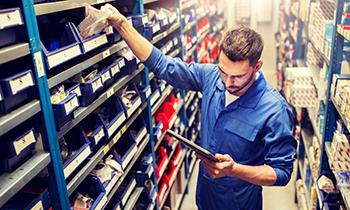How much does food waste cost your company? A case study
How much money is wasted on food waste? According to the Food and Agriculture Organization of the United Nations, the total amounts to 680 billion dollars in industrialized countries and 310 billion dollars in developing countries. To put this in perspective, each year, consumers in rich countries waste almost as much food (222 million tonnes) as the entire net food production of sub-Saharan Africa (230 million tonnes). In developing countries, 40% of losses occur at post-harvest and processing level, while in industrial countries, most of the waste takes place at later stages in the supply chain: in the EU, for instance, households are responsible for 53% of food waste. Nonetheless, the food processing industry has its part of the blame, as 19% of food waste in the EU is due to food processing.
Food waste is money waste
As a metter of fact, the food processing industry is still based upon waste. Traditional methods of testing food temperature, in fact, involve the insertion of a thermometric metal probe into the food sample. Once the reading stabilizes, the metal probe must be cleansed thoroughly, so to be reusable with the next sample. All food samples are thrown away with the packaging, as after testing they are no longer fit for consumption.
Not only is this process not eco-friendly, it is also profoundly uneconomical since an asset such as food becomes a liability on the company’s balance sheet. Food samples being wasted, represent a loss for the food manufacturer, which must take care of food disposal rather than its core business of producing food.
To tackle this problem, Cerulean has launched CelsiusChecker, a temperature measuring device that neither breaches the packaging nor spoils the food sample, as it leaves it fit for consumption after testing.
Rather than metal probes, CelsiusChecker uses a non-contact microwave thermometer. The sample, packaging included, is placed inside the CelsiusChecker’s sealed chamber, where an internal antenna measures the equilibrium temperature of the sample in the form of microwave radiation. According to Cerulean’s tests, an average food manufacturing company can save over £1,000 a day thanks to CelsiusChecker.
How Joubere saved over £1,000 per day thanks to CelsiusChecker
In 2017, Joubere Ltd., a privately held food manufacturing company based in Gillingham, Dorset, UK, was researching new solutions to decrease plant costs while improving performance. Joubere produces 28 tonnes of products per day - mostly sauces, soups and ready meals; it follows that there is a significant opportunity for cutting costs by decreasing the waste of food samples and packaging. So, Joubere reached out to Cerulean for a partnership, and Cerulean provided a CelsiusChecker unit for evaluation and later lease. It didn’t take long for Joubere to realize the economic benefit.
Thanks to CelsiusChecker, Joubere saved over 2000 plastic pots and pouches per day, equivalent to more than 350 tonnes of food in a twelve-month period. As the plastic pots and pouches are disposed at a cost of £0.50 per piece, this results in a cost cut of over £1,000 a day, equating to over £250,000 per year. Since the lease of CelsiusChecker costs considerably less than £1000 per week, by Joubere’s estimations the first month’s rental fee was repaid just after Friday lunchtime of the very first week of the month.
Joubere selected CelsiusChecker 40, with 40-litre capacity, as best fitting for its production environment. Recently, Cerulean has released CelsiusChecker 20, with 20-litre capacity and an even faster payback potential.


